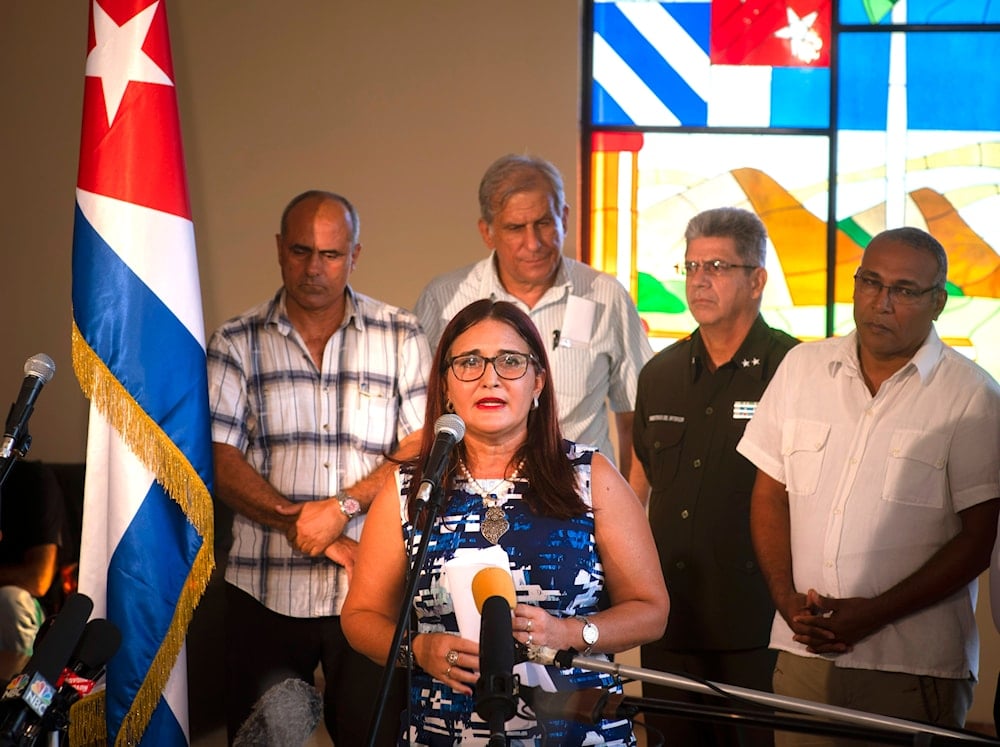Cuba accuses US of waging economic, media warfare
Cuba’s Johana Tablada says US sanctions, travel bans, and attacks on medical programs aim to isolate Havana and punish its people.
-

Deputy Director for the United States Division of the Cuban Ministry of Foreign Affairs Johana Tablada speaks to reporters in Havana, Cuba, Tuesday, July 23, 2019 (AP)
Cuba’s Deputy Director-General for US Affairs at the Foreign Ministry, Johana Tablada, has accused Washington of pursuing a systematic policy of aggression against the island, carried out through “economic and media warfare and the suppression of international cooperation,” with the ultimate goal of toppling the Cuban government.
In an interview for Alma Plus TV, Tablada said US-backed media outlets, often described as “independent", are, in fact, funded and directed by the State Department and Congress and promote a hostile narrative against Cuba.
Most of these outlets, she noted, include the word “Cuba” in their names, yet operate outside the country, and many of their contributors do not even reside there.
Furthermore, Cuba’s Deputy Director-General for US Affairs at the Foreign Ministry said that the common thread among these outlets is “violent, persistent, and systematic aggression against Cuba.” She explained that this policy manifests in “waging an economic war against a country through a systematic communications campaign that blames the victim for the impact of these measures.”
Economic pressure, sectoral impact
The US “spends millions of dollars annually to enforce the blockade against Cuba, including targeting companies and ships that do business with it, which has affected sectors such as energy and health," Tablada said.
She criticized Washington for barring its citizens from visiting Cuba, denying visas to Cuban athletes, and listing Cuba as a “state sponsor of terrorism” without justification.
She denounced the refusal of more than 80 visas this year for Cuban athletes ahead of the Los Angeles Olympics, calling it “discriminatory and absurd procedures unknown to the American people.”
“Fifty-seven percent of Americans support normalizing relations with Cuba,” Tablada noted, yet successive US administrations continue a policy of “starvation and punishment.”
Targeting Cuban medical programs
Tablada also highlighted the US suppression of Cuban medical cooperation programs, which serve 54 countries, which she said represents a violation of international law.
She explained that US policy “involves suppressing medical cooperation programs, which save lives in more than 54 countries and involve over 24,000 collaborators,” adding that “the United States criminalizes this noble and legitimate work, even though it represents cooperation between the countries of the Global South and is protected by United Nations agreements.”
Finally, Tablada underscored that “the United States does not govern Cuba,” stressing that the Cuban people will continue to resist Washington’s pressure, while Havana’s diplomacy works to unmask “Washington’s lies” before the international community.

 3 Min Read
3 Min Read










